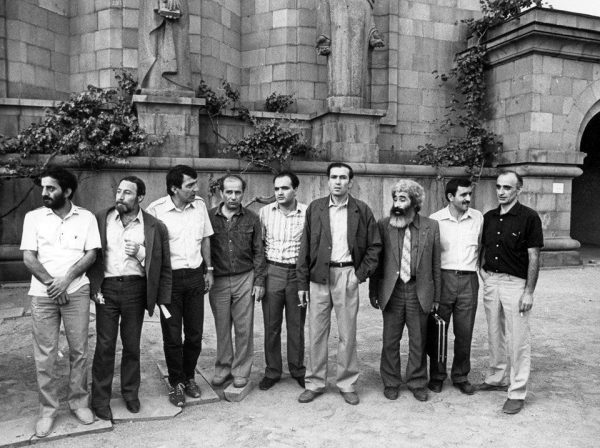When they say, “oh, how nice communists were”, it is a distortion specific to a retrospective outlook. The same bloated typically ignorant and corrupt the personages. Just like the members of the Pan-Armenian National Movement and the Republican Party. When the Movement started, a quick problem arose to get rid of that nomenclature. As it was expected, those who came to power as a result of the 1988 movement became bloated faster and even worse.
Nevertheless, the communist official and intellectual elite were to be replaced. Some of them have done a lot in the 60s for the preservation and dissemination of national values during Khrushchev’s thaw. But in 1988, they were hopelessly outdated. First of all, because they did not realize the processes of the collapse of the Soviet Union that were underway and believed that the issue of Artsakh or any other issue could be solved by Moscow’s intervention and within the framework of the Soviet Empire.
That is why replacement of Silva Kaputikyan and Zori Balayan by “Karabakh” committee members on the tribune at the Freedom Square was legitimate. The members of that committee were also intellectuals, but did not bear the burden of Soviet nomenclature, and were perceived as a real alternative by 100 thousand people.
Minutes before the opening of the ANM Founding Congress in early November 1989, Samvel Gevorgyan, a member of the “Karabakh” Committee, informed the audience that some “editorial change” had taken place in the party program. However, that change was not really editorial at all. “The goal of the Pan-Armenian National Movement is to create an independent Armenian state”. Unlike Azerbaijan, the party elite of which was still guided by Soviet stereotypes, Armenia’s “de facto” and then “de jure” government was a step forward and understood that the Artsakh issue could be solved only when Armenia became an independent state. It gave us a certain “tempo” advantage, which became the basis of the successes in the Artsakh front.
I think this is the objective “pure historical” assessment of the movement of 1988. This, of course, does not mean that the movement did not have any errors or failures. But let us talk about those another time.
Aram ABRAHAMYAN



















































